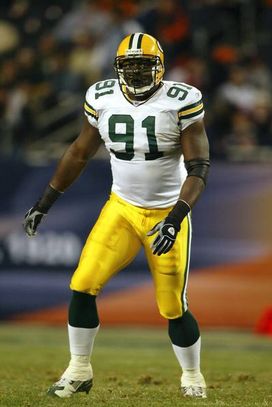Elephant in the Room
 By Jon Meerdink
By Jon Meerdink
I've heard Julius Peppers described as an elephant so many times in the last week that I'm starting to believe he might have a trunk. Everybody and their brother has run a column about how the Packers plan to use Julius Peppers in a hybrid "elephant" role that isn't quite a lineman and isn't quite a linebacker, but will definitely be a problem for opposing quarterbacks.
All of those columns are dumb.
The substance of the columns isn't dumb. Heck, we ran a column here about how Peppers might be used. But I think these sorts of columns aren't always helpful because of what they do to fans' expectations for a particular player.
For instance, this isn't the first time that a big, free agent defensive end signed by the Packers has been described as an "elephant." Anybody remember Joe Johnson? From the Milwaukee Journal Sentinel on March 29, 2002:
Sherman said he would like to see Brown, an unrestricted free agent, return to his starting nose tackle position so he can form with Holliday (power end), Johnson (elephant end) and Hunt the biggest and strongest front the Packers have had since their Super Bowl days.
Yeah, how did that work out? Despite the big contact for Johnson (a now paltry-looking six years and $33 million), the Packers never developed the monster defensive line Mike Sherman envisioned. Why? There are many reasons, but hyping up a free agent signing with a big contract and a fancy, exotic sounding position probably didn't help in the court of public opinion.
When you label things, and label them in a high profile, public way, you frame the conversation in a way that can very quickly run out of control. Describing Julius Peppers as an "elephant" might mean one thing in the Packers' defensive meeting rooms, but for fans it means something entirely different on the field and in online commentary. We see players play and we think they're supposed to be doing something a certain way, but our perception might not line up with what the coaches expect or want.
Pro Football Focus is a microcosm of this phenomenon. While their rankings and grades can be very helpful, they're also not based on a coach's perception of a play. What might look like a success on TV or on the NFL's All-22 film might actually be a failure in the eye's of the coaching staff and front office, the only opinions that actually matter. For instance, PFF rated Eddie Lacy well on his blocking this year, describing it as one of his strengths. But the Milwaukee Journal-Sentinel's Bob McGinn, who gets his ranking information from the coaching staff, described Eddie Lacy's blocking as a liability.
I fear this may also be a danger with this new "elephant" position. Whether it's Joe Johnson (ugh), Cletidus Hunt (another high profile elephant end and defensive tackle), or Juilus Peppers, elephants haven't always worked out for the Packers. I hope this one does, but more than anything, I hope we're not getting our expectations too high.